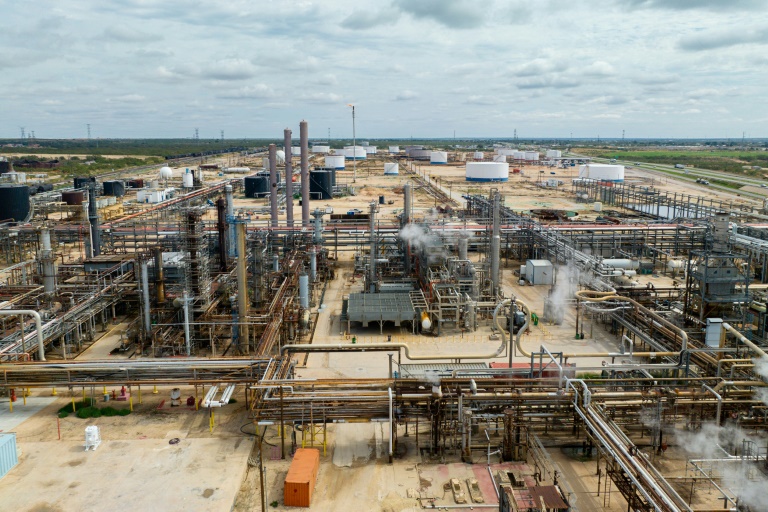ExxonMobil and Chevron reported lower profits Friday compared with the year-ago blowout quarter as the oil giants touted recent acquisitions they said balance economic and environmental priorities.
The two petroleum heavyweights — which in recent weeks have unveiled large takeovers of midsized fossil fuel players — both reported third-quarter profits that were big, but dwarfed by those in the year-ago period.
ExxonMobil reported third-quarter profits of $9.1 billion, less than half the level in the 2022 period of booming commodity prices, while Chevron scored profits of $6.5 billion, down 42 percent from the year-ago level.
The lower profits reflected an ebbing in commodity prices compared with the year-ago period, when Russia’s invasion of Ukraine lifted oil and natural gas prices.
The results were released only days after Chevron announced a $53 billion acquisition of Hess that includes a significant stake in an oil-rich Guyana offshore territory.
That followed on the heels of ExxonMobil’s $60 billion takeover of Pioneer Natural Resources, a big player in the Permian Basin, a fast-growing petroleum region in the southwestern US.
The two large transactions have raised hopes among investment bankers of additional merger and acquisition activity involving fossil fuels, while angering progressive lawmakers and others focused on addressing climate change.
“While our homes get destroyed by climate-supercharged storms, Chevron and Exxon are betting the house on a fossil-fueled future,” Democratic Senator Ed Markey said on X, formerly Twitter, earlier this week.
“We have to make Big Oil fold their hand before our future goes bust.”
In the latest quarter, ExxonMobil scored higher oil and natural gas volumes compared with the second quarter and said that 2023 capital and exploration spending would be “at the top end” of its forecast “as the company pursues value accretive opportunities,” according to its earnings press release.
“We delivered another quarter of strong operational performance, earnings and cash flows, adding nearly 80,000 net oil-equivalent barrels per day to support global supply,” said Chief Executive Darren Woods.
ExxonMobil has said it plans significant investment in Pioneer’s Permian Basin fields that would enable Exxon to more than double its current volumes from the region to two million barrels of oil equivalent per day in 2027.
In its press release, ExxonMobil characterized its approach as a balanced strategy, noting the company has also announced a $4.9 billion takeover of Denbury Inc. as a bet on carbon capture and sequestration, which the company has touted as a climate solution.
ExxonMobil said its would boost petroleum output and “accelerate Pioneer’s path to net zero” emissions.
“The two transactions we’ve announced further underscore our ongoing commitment to the ‘and’ equation by continuing to meet the world’s needs for energy and essential products while reducing emissions,” Woods said.
“Pioneer will help us grow supply to meet the world’s energy needs with lower carbon intensity while Denbury improves our competitive position to economically reduce emissions in hard-to-decarbonize industries.”
Chevron’s results also showed an uptick in third-quarter production, with the company citing the boost from it earlier purchase of PDC Energy, smaller Permian operator.
Chevron as well highlighted its comparatively small efforts in its “New Energies” division, which last month closed a transaction to acquire a majority stake in Aces Delta. The first projet in that venture will convert and store hydrogen made from renewable energy, is expected to enter commercial service in 2025.
“Chevron is delivering strong financial results while also investing to profitably grow our traditional and new energy businesses to drive superior value for shareholders,” said Chevron Chief Executive Mike Wirth.
But critics such as clean energy podcaster David Roberts ripped both deals, saying on X, “Oil companies are quite flagrantly telling the world that they don’t take decarbonization goals seriously. They are betting on climate failure, to the tun of billions.”
Shares of ExxonMobil rose 0.3 percent in pre-market trading, while Chevron fell 2.1 percent.






